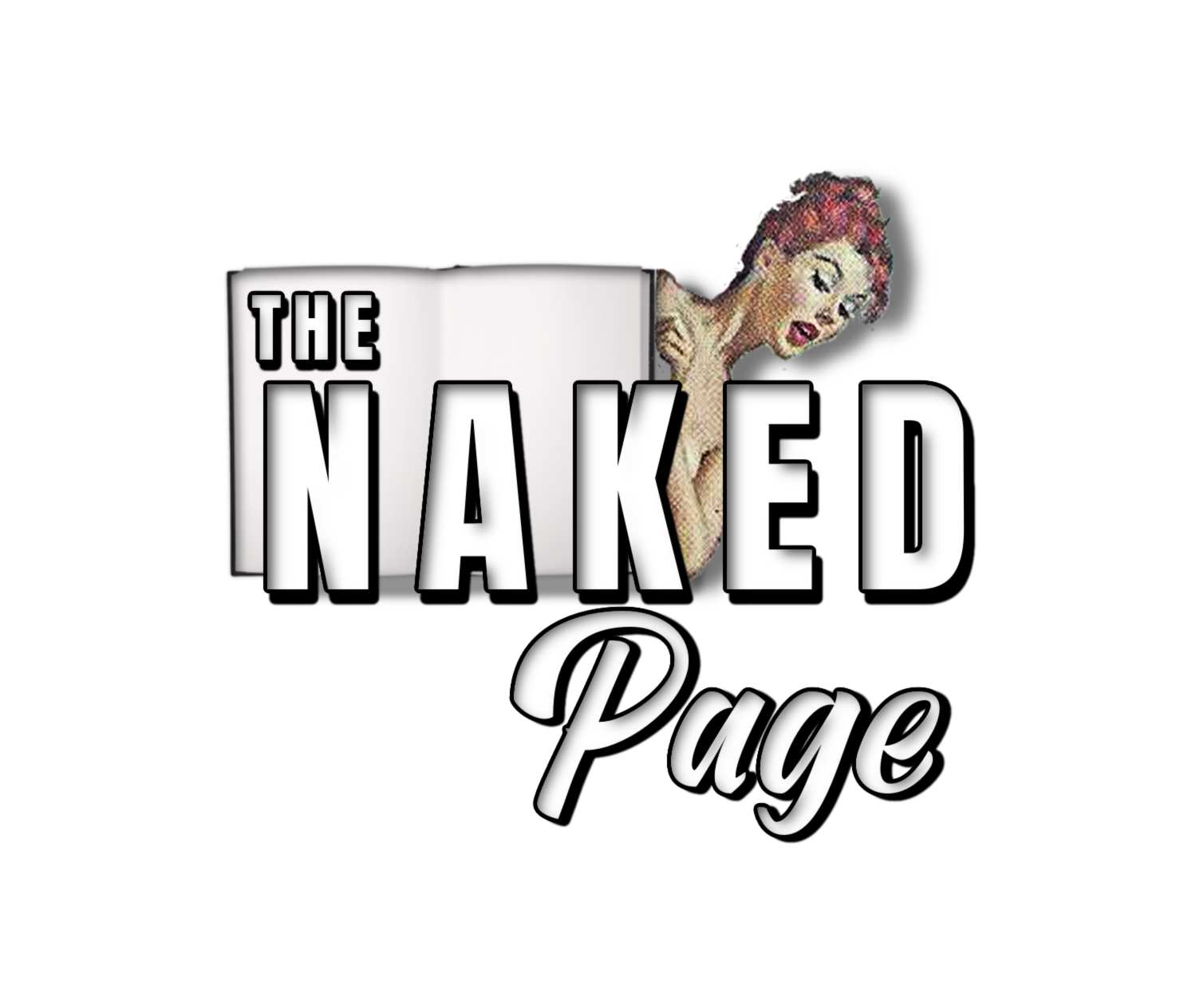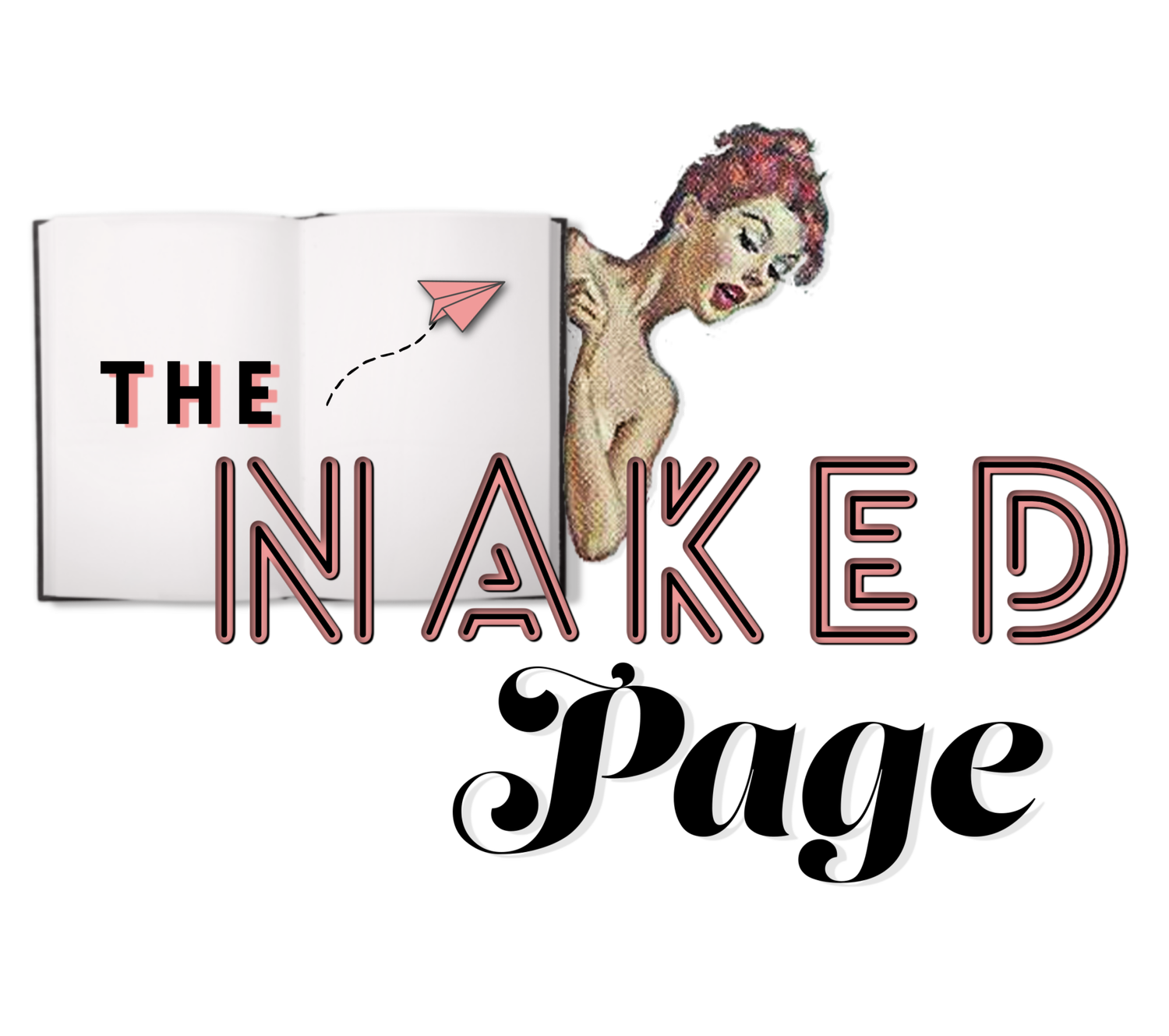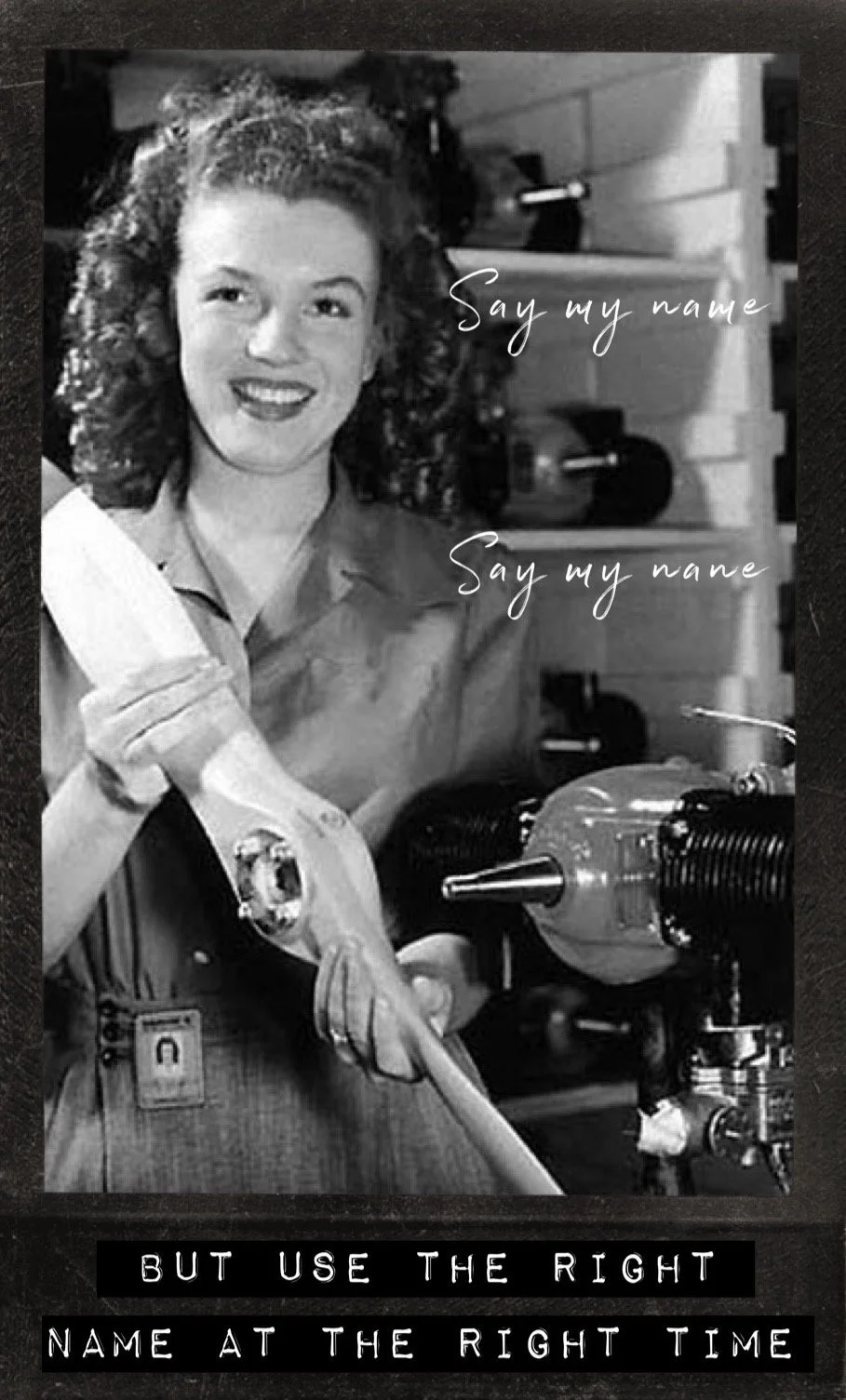Who the Hell Are You? Using a Pen Name
[Read my companion piece Could Using a Pen Name Help You Write More Honestly? on Substack.]
In my most recent online class, the teacher kept calling me by the wrong name. At first, I ignored it. But after the third round of being labeled with the wrong moniker, I vowed to speak up and correct him. I mean, my name was right there in front of his eyes every time he responded to my discussion questions.
But I hesitated.
Was I making a big deal out of nothing?
And who was I to get so bothered by being called the wrong name when I used a pseudonym in my writing? Wouldn’t it just be easier to answer as this Anne stranger he kept referencing? At least he spelled her name with an e.
For people who don’t want to rock the boat it’s easy to think your name doesn’t matter. Haven’t we all been that person at a party who had to do the introduction shuffle when we failed to recall a colleague or acquaintance’s name?
Go ahead and tell yourself that it’s only your work you want to be acknowledged. Suuuuurre. We believe you.
“Hey man, just respect my ideas, okay?”
Truth is your name is your signature. And that’s a crucial weapon in your writing arsenal.
It’s a stamp we get at birth or we choose for ourselves as adults. And every time you add your name to a piece of writing it gives proof that you completed the project. Big stuff. Or as an old friend once summed up when I opted to go nameless on a story I co-wrote, “The evidence of credit shows your timeline of work.”
Touché
That credit might not matter to you now, but down the road, it could have a huge impact. It accounts for your skills, your time, and your credentials.
I know this all too well. The above example became a sore subject in my own household.
My now husband—then boyfriend—and I were working on a piece of writing together. Newly dating, he asked me to enter a writing competition with him. I was a flight attendant and couldn’t commit to a specific time or place to write. I said (in words I now regret), “Just leave my name off it and we’ll write under yours. I don’t know how much I’ll be able to contribute.”
But contribute I did. The relationship was brand spankin’ new so of course I wanted to connect with him at every possible layover. And the easiest way to do that was to virtually work on our short story together.
I never expected we’d win the damn contest. Yep, we won. And where was my name to reflect my contribution? You guessed it. Not on the winning story.
The use of your name symbolizes your creative efforts.
“I made this.”
Says the kid after the credits roll at the end of Ten Thirteen TV shows like Millennium or the X-Files. It’s catchy, perhaps a bit juvenile, but it’s the perfect ego boost. A bold announcement that your work is out in the world.
So, give yourself some credit! You deserve it and so does your psyche.
But who should get that credit? Wrestling over whether or not to use a pen name can be a major decision—and distraction—for an author.
Back in 2009, I was afflicted with a health condition I didn’t fully understand. I had kidney stones and autoimmune symptoms that wouldn’t go away, probably from exposure to an environmentally toxic mold. So, I started eating differently and dancing as a way to get back into shape.
As my luck would have it, I took a class from Pyrrha Sutra, a well-known burlesque performer who was inducted into the Burlesque Hall of Fame by having her fire tassels lit by the late great Satan’s Angel. Not long after, I was feeling better and performing in her monthly burlesque shows.
Having pursued a theatre degree, this theatrical reunion felt like old times. It wasn’t long before I was emceeing shows, and writing material, and I even produced Phoenix’s Burlesque Weekend with Catherine D’lish.
But I started my foray into the fringe theatre world while I was still teaching high school. If you can believe it, I was even teaching classes by day on the same street where I was performing burlesque at night. Mill Avenue. It’s Tempe, Arizona after all.
When I started writing about my stripping experiences, it made sense to write under a pseudonym. I already had a stage name, as did all my fellow performers. In that world, going by two names was normal.
After leaving the teaching profession, I was performing full-time and writing. I moved to the conservative South and assisted several authors and poets. Writing, learning to edit, and volunteering as a social advocate for the LGBT community and HIV education kept my pen name in circulation.
I was also told by a family member “You’ll never find a job down here, not doing your borderline pornography.” Can I get an Oy-vey? (I’m not Jewish but I can’t think of a more appropriate exclamation to go here.)
My time in the Deep South didn’t last long, as you might have guessed. Still, I had to make the most of small-town rendezvous. While living there, I never allowed the veil between my two sides to slip, at least not in the light of day. I had cultivated a writing portfolio under the name Blissom and I wasn’t willing to let her go.
So, I split myself in half.
It worked for a while. I published several travel articles under my pen name. And I’m still using my nom de plume. But if I’m honest, it hasn’t always been easy.
Meeting people in person who only know me online as Blissom has led to some awkward encounters. For instance the time my friend Connie invited me to see Anne Lamont—another Anne with an e. Just before the show, I referred to myself by my legal name. Poor Connie had no idea who she’d gotten mixed up with.
When I started my job as a flight attendant, I was glad to have a pseudonym. Writing travel pieces, I didn’t want to tip the airline off to my side job. I also wanted to write with brutal honesty. But I’ll never forget the panic I felt when I left a copy of my Creative Nonfiction magazine on the plane with the address sticker labeled Blissom Booblé.
Eek! Was my cover blown?
Nothing came of it, but after my experiences in the South, I harbored trepidation—and a little exhilaration—over my identity getting discovered.
Many people assume that if you’re a performer or writer your audience is seeing the whole you in your creative endeavors. They don’t understand that your performance or your book is just one piece of you. Like them, you’re a three-dimensional human with vast ideas, preferences, and the ability to change your mind.
Sure, we can listen to Elton John sing Goodbye, Norma Jean, and imagine he’s reaching out to that one real part of Marilyn who got lost somewhere in her rise to fame. But maybe she needed both names to reclaim all of herself. Sometimes having both a birth name and a stage name makes us who we are.
Wouldn’t you agree, Reginald Dwight?
The pseudonym may seem silly to some. Like a writer or performer living in a made-up world. But I can’t stress enough that there are real reasons why a pseudonym is essential.
When Sister Roma spoke up about Facebook’s decision to ban people from using “fake” names, it stirred something in me.
Choosing a new name is not about hiding parts of yourself. Sometimes an alias allows you to reveal things you’d otherwise never be allowed to show in society. In many cases, choosing a new name means attaining equality in a way you couldn’t if you went by your birth name.
Hello, George Sand (and all those other women writers) who wrote under a man’s name to survive publishing. You’re a testament to what a pseudonym has allowed us to attain.
I love how thesarus.com lists professional name as a synonym for pseudonym.
My decision to add my story to the Facebook controversy wasn’t just about a need to claim two identities. To be avant-garde. Or to push the envelope. The necessity of keeping an assumed name went far beyond advocating for my own rights.
My days in the Deep South did lead me to a good friend. As a trans man, my friend had recently changed his name, but it wasn’t reflected on his driver’s license yet. There was always palpable fear between us whenever we went for a drink and he got carded. Would his identity be questioned? If so, would we have to fend off insinuations? Anger? Violence?
For some, being called by the wrong name in the wrong place can be a matter of life or death.
Claiming my pseudonym also represented my stand for the rights of those who had to rely on a moniker that was different from the one they were given at birth.
Maybe your circumstances aren’t dire.
Perhaps you’re just toying with the idea of using a pseudonym because you want some anonymity while writing.
It’s your right to determine what you’ll be called and when, where, and how people will use your name.
No one would accidentally call Lady Gaga Stefani in public. Even her own mother says she uses her given name at home and her chosen name when they’re in public—out of respect. So, if the person giving Lady Gaga her first name can do it, I’m confident the rest of the population can oblige.
“Pick your pen name and proudly use it. ”
If that’s what calls to you.
But before you decide on a pseudonym, I’d like to let you in on the pros and cons I ran into when claiming my nom de plume. Take it from somebody who's been straddling two identities for the better part of a decade. You’ll need to carefully weigh out these circumstances before crowning yourself with a new title.
“Pseudonyms have their problems and their possibilities.”
Pros:
You’ll find your author’s voice earlier. Taking on a new persona gives you an advantage. It’s easier to set aside your everyday personality and define who you want to be on the page. For me, Blissom wasn’t so much a new person, just a bolder, more brazen version of myself. She allows me to say things I might otherwise omit.
You’ll feel more inclined to write the truth of your experiences. When you adopt a new persona, you’ll feel more like a real writer, rather than a people pleaser. And you’ll be less inclined to tip-toe or play nice on the page.
You’ll create a clear separation between your personal and professional life. The boundaries between who you are in private and your writing life will be better defined. None of my family is on Blissom’s social media pages.
It can be your first taste of freedom. If you come from a marginalized background or want to reclaim parts of yourself you don’t normally show the world, adopting a name of your choosing can be a liberating experience.
I’ll never forget the naming exercise I did with Pyrrha Sutra in a burlesque class specifically created for women who had breast cancer. Post-mastectomy, the opportunity to express their femininity was groundbreaking. “I feel like a woman again,” Diamond Doll told me after picking her own name. A name may only be a symbol, but it has the power to push you toward possibilities.
It can help you keep your day job. I certainly didn’t want my high school students to have any idea I was doing burlesque. Or for the airlines to know I was publishing my truthful travel writing. Having a separate name kept me employed during the lean times.
Cons:
It can be a hassle if people know you in both worlds. Some people will mistakenly address you by the wrong name at the wrong time and that can be a challenge when you’re trying to do business.
Business transactions and legalities can get complicated. Setting up websites, P.O. boxes, banking accounts, etc. can be time-consuming and involve a big paper trail when you're using a “doing business as.”
Don’t blow your cover. You might accidentally send out emails using the wrong address, giving away your identity. Juggling the two sides of yourself can make you feel like you have to be hyper-focused on who you are. I was always double-checking to make sure my Blissom email wasn’t used when corresponding with the airlines.
Some people might not take you seriously. I’ve had a few occasions where I was denied entry into a book or writing group. Granted we’re talking older, more traditional types, but being rejected is never fun. In the early days, this upset me. These days, I take it as a sign of the places where I don’t want to hang out.
Like everything in life, pseudonyms have their problems and their possibilities. In my particular situation, using a pseudonym made sense. It kept me and the people around me safe. And it gave me the freedom I needed to get insanely creative in my work.
Just remember you’re managing two identities. Being back in Phoenix and no longer working an outside job means I’m less worried these days. But I am considering graduate school, so my life might get interesting again soon.
Choosing a pen name should be about your comfort level and not about other people’s expectations.
Unless you’re in an ultra-traditional environment, I’ve found most people are intrigued to learn about my other side.
There are ways to embrace both sides of yourself.
Today, if I have to speak to a group or give a class, I’ll open by suggesting participants choose a pen name. In the icebreaker, I can relay my backstory while simultaneously encouraging them to consider their ideal author’s persona.
Life is what you make it, as the saying goes. I think names follow the same rule.
Try it out.
If you could be any writer in the world who would you choose? Claim a new name for that author’s persona.


